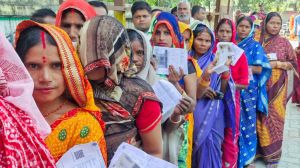Latin America wants veto in UN Security Council
ASUNCION (PARAGUAY), AUG 24: Latin America should have a permanent seat at the UN Security Council to give the region more clout in the wor...

ASUNCION (PARAGUAY), AUG 24: Latin America should have a permanent seat at the UN Security Council to give the region more clout in the world body, the presidents of Argentina and Brazil said.
But what Latin American country should occupy the seat was not resolved on Saturday during the 11th annual meeting of the group of Rio in Asuncion, the Paraguayan capital.
Before adjourning the meeting one day earlier than planned, the 12 regional leaders also signed a joint declaration criticizing the Helms-Burton law, which tightens the decades-old United States embargo on Cuba.
“The measure, approved last year, threatens relations of friendship and cooperation,” the declaration said.
Argentina and Brazil have been at odds over the Security Council seat, with the former suggesting it should rotate among the nations of the region and the latter wanting to occupy the post itself.
Brazil’s Fernando Cardoso and Argentina’s Carlos Menem said on Saturday, however, that the issue should not divide their countries. “We will approach the issue of the Security Council as a positive step for our region,” Cardoso told reporters during a joint press conference with Menem. We want the three V’s: voice, vote and veto, for whatever country represents us.” The first part of the meeting on Saturday was devoted to the expansion of democracy in the region. The remainder, which was closed to reporters, focused on the military balance of power in the region and ties to the US.The Helms-Burton law has complicated those ties because it threatens sanctions against foreign companies that use property confiscated from US citizens after the 1959 Cuban revolution.
Many Latin American countries including Brazil and Mexico have business ties with the Caribbean island. Besides criticizing the law and supporting the inclusion of Latin America and the Caribbean on the Security Council, the joint declaration on Saturday urged the creation of a free-trade area throughout the Americas by 2005 at the latest.”
It also listed drug-trafficking, terrorism and corruption as the greatest threats to democratic stability and public security.
Photos



- 01
- 02
- 03
- 04
- 05




























